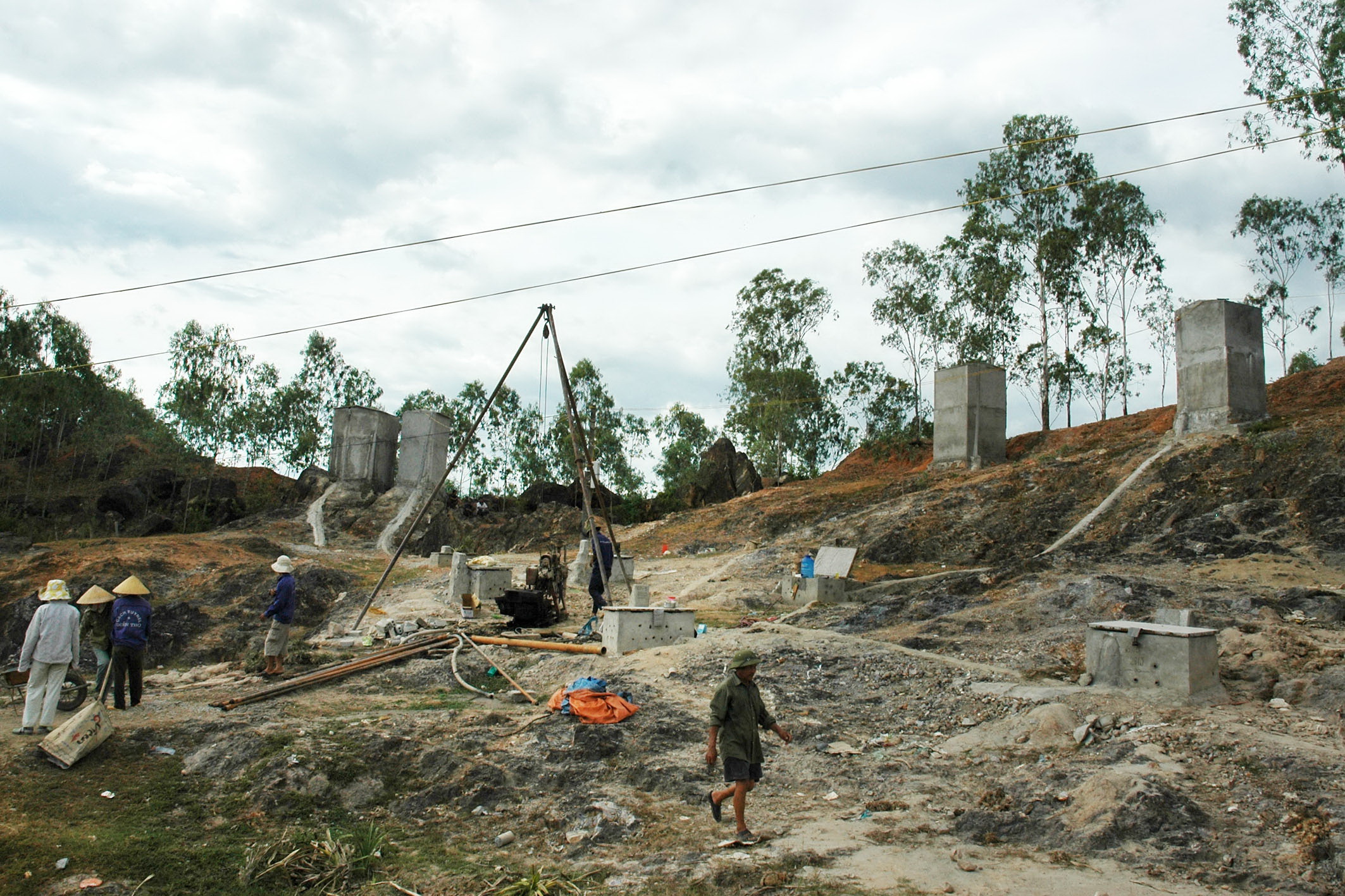The Ru Ta archeological site in central Nghe An province’s Dien Chau district has been ravaged by over 100 wells that have been dug since early this year to supply locals with clean water for daily consumption, which is another example of the clash between relic preservation and locals’ living needs in the country.
The archeological site, from which scores of ancient artifacts have been unearthed by local and foreign excavation groups, now looks like a construction site teeming with commotion and digging and drilling activity, not for antiques, but for well water.
The southern ridge of Ru Ta is bustling with three well ‘blockhouses’ built several years ago by Gia Loc Co. for underground water to produce the NASA mineral water brand.
Dozens of such water ‘blockhouses’ and octopus-like pipelines crisscross the area.
According to locals, more than 100 wells have been drilled. After the pumps are attached, the wells are covered to make them theft-proof.
Six drill teams have been working non-stop, rain or shine. Pham Van Quy, a drill operator, said that they have to drill some 40 or 50 meters deep for a well, a task which takes 7-10 days to finish.
“I haven’t had a single day off since early last month, but there are several more orders on the waiting list,” Quy said.
“We’re well aware that Ru Ta is a treasured relic and our drilling has done damage to it, but we have no choice, as we don’t have a clean source of water for daily consumption except rain water, which is far from enough,” lamented Nguyen Thi Nhung, a local who is having her well drilled at the site, adding that locals followed Gia Loc Co. in the drilling.
They don’t need to perform any procedures with the local government regarding the drilling except praying for permission from the gods.
According to Professor Hoang Xuan Chinh, the 1,500-m2 Ru Ta archeological site bears abundant vestiges of ancient residents in the ground layers measuring 0.2-1.4 m thick.
“Ru Ta is of great significance to archeologists, as many antiques belonging to the peak time of the Stone Age, on the threshold of the Bronze Age, some 4,000-5,000 years ago, including evidence of primitive people’s process of making stone tools, have been excavated at the site. No where else in Dien Chau district has archeological valuables, many of which date back to the Bau Tro culture,” Chinh noted.
The Ru Ta mount is also home to several historical relics, including the temple of Cao Lo, a talented general in the King An Duong Vuong legend.
Since 1978, Vietnamese and Japanese archeologists have conducted several surveys and excavations at the site, said Cao Van Thanh, chair of the Dien Tho commune People’s Committee, adding that the site has been zoned for more excavation in the future.
Prof. Chinh urged that the provincial government quickly come up with a plan to preserve the relic.
Nguyen Manh Ha, a Dien Tho commune official, told Tuoi Tre on July 9 that the commune government has neither encouraged nor banned the drilling of wells by locals at the Ru Ta site. Locals are only requested to ensure that their pipelines are hidden underground to prevent traffic problems.
Meanwhile, Hoang Thi Huong, deputy head of the Dien Chau district People’s Committee, affirmed that the committee will suspend and check the at Ru Ta and assess the damage the activity has done to the site. They will also work on approaches to provide clean water for locals and stop rampant drilling.
Several places in the country have faced a similar dilemma, in which relic preservation seriously clashes with the daily needs of local residents.
Dozens of households in Duong Lam Ancient Village in Hanoi and Dong Van Ancient Quarter in northern Ha Giang’s Dong Van District have recently petitioned the government to remove their villages’ national relic titles, as they can neither build new houses nor repair or expand their seriously damaged, cramped houses due to the relics’ preservation requirements.


















































